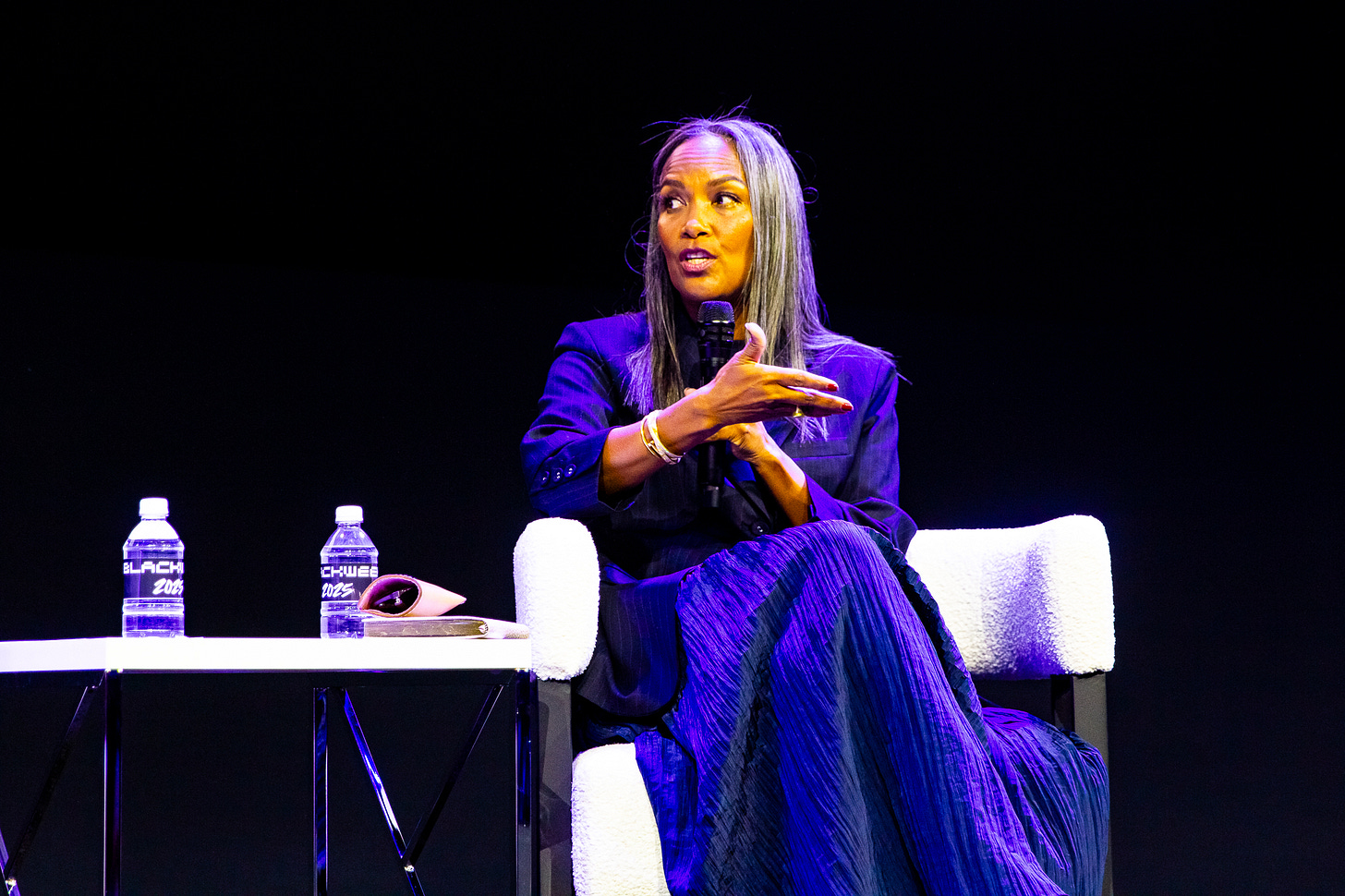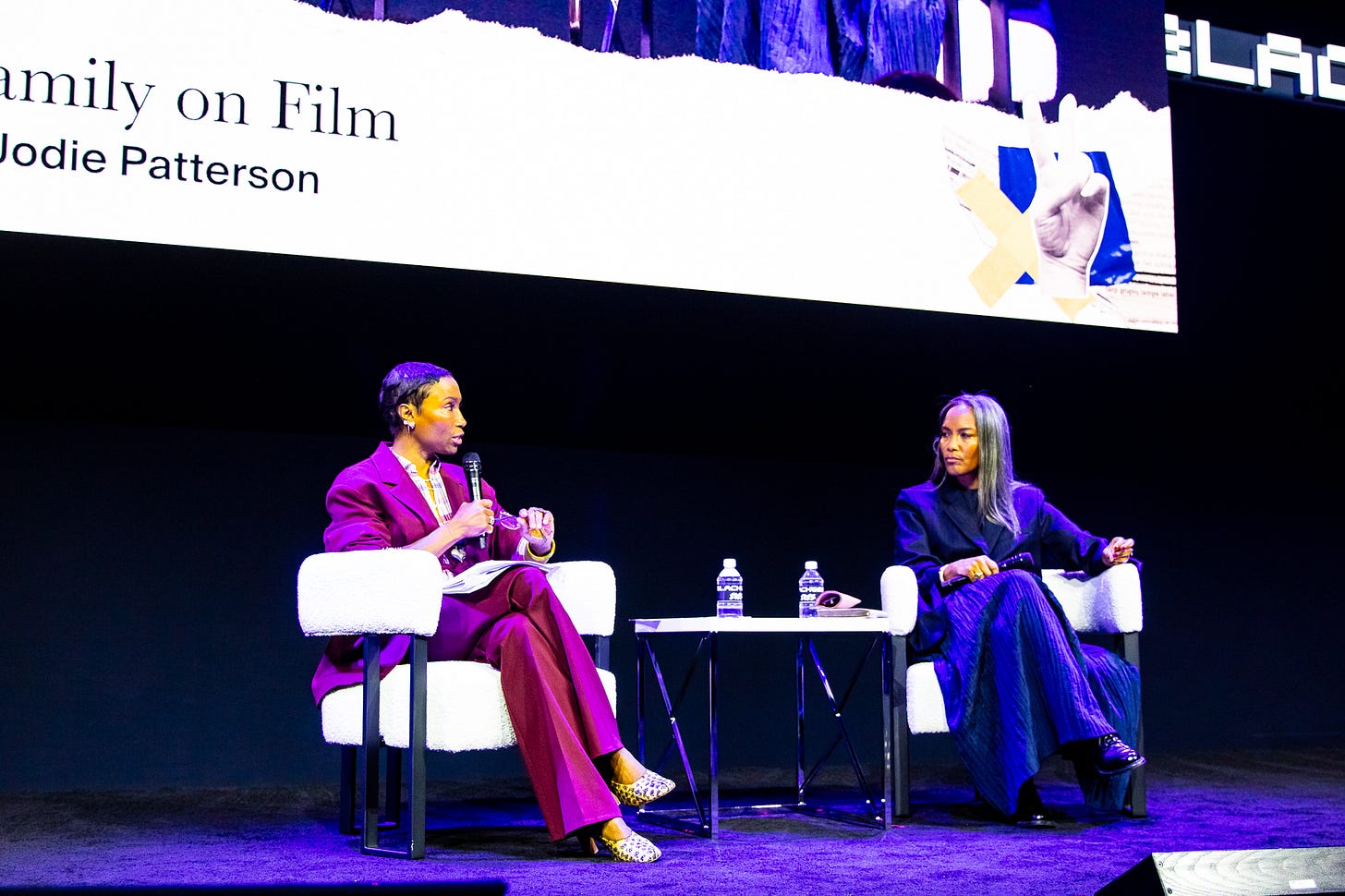Capitalizing on what America doesn't see: Mara Brock Akil on the Black family
Blackweek 2025 explored cultural topics driving streaming video
Advertising Week New York buzzed throughout the city with industry executives, filmmakers, celebrities and professionals across the marketing, media and advertising spectrum. However, as brands race to be part of culture online and IRL, noticeably absent from most Advertising Week schedules were conversations with actual culture makers.
Blackweek, now in its second year, welcomed writer and producer Mara Brock Akil to its annual forum and festival at Spring Studios in New York City. The weeklong conference featured special appearances by industry giants such as journalists Don Lemon and Joy Anne Reid, Bishop T.D. Jakes, longtime SNL cast member Kenan Thompson and actress-writer Lena Waithe and many more.
The television veteran, best known for creating hit shows like “Girlfriends,” “The Game,” “Being Mary Jane” and “Love Is,” sat down with award-winning author and activist Jodie Patterson for a powerful discussion about her creative journey as a showrunner and approach to creating diverse African American characters.
When asked if she always set out to tell Black stories, the trailblazer explained that at the heart of human nature, everyone wants to be seen and represented in some form or fashion. On the surface, the conversation served as a celebration of the filmmaker’s work while also exploring the importance of cultural visibility. On a deeper level, the TV giant uses her platform to “capitalize” on the stories the country doesn’t see.
“That’s what I’ve been doing,” Brock Akil said. “You [America] don’t value it, but I do and the audience I rock with values it.”
With most of Mara Brock Akil’s catalogue streaming on platforms like Netflix and BET Plus, fans showcased their support through social media, but her impact far extends the fan experience. If you take a look at the credits of shows like “Girlfriends,” you will find familiar names Prentice Penny and Kenya Barris, who would later go on to create HBO’s “Insecure” and ABC’s “Black-ish” and its subsequent spinoffs, respectively.
While Brock Akil spoke about her pantheon of work, she dedicated space to talk about “Forever,” Netflix’s new teen drama, where she currently serves as showrunner.
Based on the 1975 Judy Blume novel of the same name, the streamer stars Lovie Simone (”Greenleaf,” “The Craft Legacy”) and newcomer Michael Cooper Jr. (”Infraction,” “The Inhabitant”) as teens Keisha and Justin navigating relationships, sexuality and adolescence in a pre-pandemic Los Angeles. The series, now set in 2018, most notably reimagined the two leads as African Americans.
Reimagining literary characters as people of color isn’t new. Most recently, actress Leah Jefferies made headlines when she was cast as Annabeth Chase in the small screen adaptation of “Percy Jackson & the Olympians” on Disney+. The same can be said for its 2010 cinematic predecessor that featured comedian-actor Brandon T. Jackson as Grover the Satyr.
The trailblazer recounted a time where her career matched her “ability to run a show.” Citing shows like “Sex and the City” that opened the dialogue for taboo conversations, Brock Akil lamented that while the tables were turning, there was still a lack of visible diversity. For her, the race-swap isn’t as nuanced people might think.
“We want the same things,” Brock Akil said. “But the details in our approach is what makes it the mirror and the witnessing and the ability to sort of be seen.”
It’s a full circle moment for Brock Akil who cited Blume’s writing style as a blueprint that shaped her writing voice. “Forever,” which premiered earlier this year, has been highly praised for its positive yet realistic depiction of African American families. A week after its release, the series was renewed for a second season. Creating a world devoid of what Patterson called “trauma porn” was intentional for the showrunner.
Comparing the show’s leads to “two little Nemo fishes” swimming through the ocean, Brock Akil pointed out that while her characters are prone to danger and harm, there is beauty in survival.
“What’s so beautiful about us, is that despite the conditions in which we live, most Black people are not only surviving but they’re making progress,” Brock Akil said. “They’re finding love. They’re making family dinners. They are getting to the vineyard. We are doing those things, but what’s mirrored back to us ... is that we are being raped. We are being murdered. We are being politically violated. We are being lied to by this, that and the third. But we are swimming in this ocean and we are making it.
“Forever” is currently streaming on Netflix.





